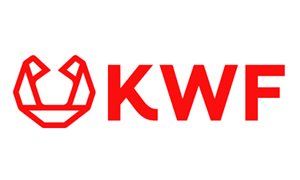
The Radboudumc receives a grant of 2.5 million euros for research into the rejection of transplant organs. With this ERC Grant from the European Union, Willem Mulder will research new nanotechnology to prevent organ rejection in patients who have received a transplanted organ.
Taking control of innate immunity to achieve organ transplant acceptance
Together with his colleagues at Tu/e Willem Mulder of Internal Medicine will explore novel nanotechnology to prevent organ rejection in patients who have received a transplanted organ. Organ rejection is caused by our immune system, which fights any foreign element that is introduced into our body. While there are effective drugs on the market to suppress this reaction, chronic immunosuppression comes at a tremendous price. The drugs cause serious adverse effects, including cancer, and long-term rejection remains a serious problem.
Rejection is mediated by innate immune system activation, which together with the adaptive immune system is responsible for our body’s defense against infections and other diseases. Recently, it has become clear that this innate system, just as our adaptive system, harbors a memory function, opening new avenues for treating illnesses like cancer.
It is this innate system that Mulder and his colleagues also want to harness to increase our body’s tolerance to transplanted organs. “The current strategy in organ transplantation is to suppress an already activated immune system, seriously compromising a patient’s ability to fight off disease. Our focus is on preventing immune system activation using highly innovative nanotechnology that integrates RNA or immunoregulatory proteins”, says Mulder.
While focusing on kidney transplant patients, the research can have wide-ranging benefits for other patients. “Similar innate immunity-focused disease management strategies can be developed for other conditions that are characterized by an exacerbated immune response. Think of COVID-19, autoimmune and cardiovascular diseases.”
About ERC
The European Research Council was set up by the European Union in 2007 and is the most important European funding organization for groundbreaking research. Advanced ERC grants are aimed at well-established top researchers, who have a recent high-level research track-record and profile which identifies them as leaders in their respective field. Grants can amount to 2.5 million euros per grant (or 3.5 million in exceptional cases).
-
Want to know more about these subjects? Click on the buttons below for more news.
More information
Pauline Dekhuijzen

wetenschaps- en persvoorlichter
Related news items

Tackling cancer with radioactive particles
2 September 2021 Professor Sandra Heskamp receives grant for research into cancer treatment with radioactivity go to page
VIDI grants for researchers of Radboud university medical center
14 July 2021 Several Radboudumc researchers have been awarded a VIDI grant by the Dutch Organisation for Scientific Research (NWO). They each receive a sum of 800,000 euros, which they will use over the next five years to develop their own innovative line of research and to set up a research group. go to page
New culture method reveals how cancer cells bypass immune system
5 July 2021Publication in Cancer Immunology Research
go to page
Vaccination with immune cells boosts immune system after stem cell transplantation
1 June 2021 Jesper van Eck van der Sluijs and other researchers have developed a method for growing different types of dendritic cells: the cells of the immune system that specialize in processing foreign substances (including tumor proteins) and presenting them to killer cells. go to page

